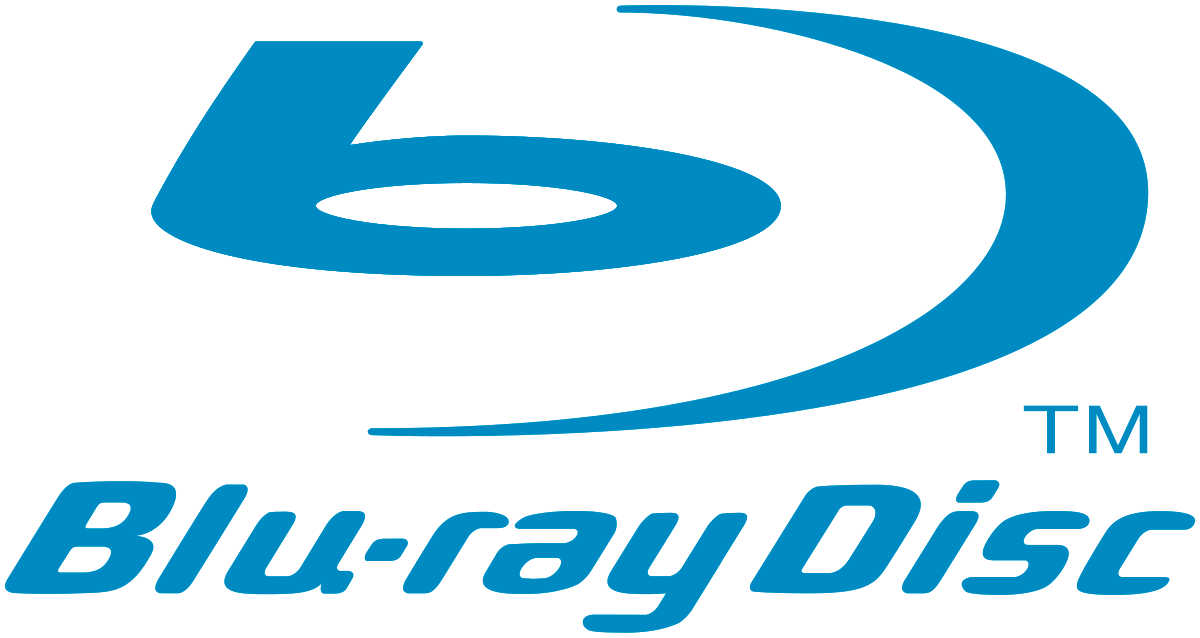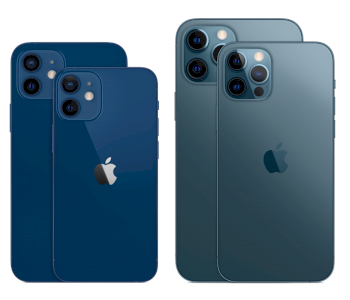Are UHD Blu-ray discs actually already DEAD before they could prevail properly?
The good old VHS cassette was still well represented in German households until 2004, but was increasingly replaced by the DVD disc.
This has actually held up well today. Even if the sales figures have declined somewhat since 2012. This is apparently also their successor, the Blu Ray owed.
However, it seems, at least from the wiki article, the Blu Ray can't follow up on the success of the DVD until today.
The sales figures are almost stable since 2012 until today.
That did not seem to change the 3D feature of Blu Ray movies either. These seem to be now completely extinct, if you look around in the electronics market for new TVs, have nowadays hardly a TV set a 3D function.
In the wake of new TV sets and the ability to watch movies in UHD, there are appropriate devices - such as the new UHD Blu Ray Player.
However, I read already on the net and hear it from hearsay, that thanks to the streaming services such as Netflix and Co, the interest in buying or borrowing media in particular the UHD Blu Ray has significantly lost importance or seems to have.
Will the DVD survive even the UHD?
Is the purchase of a UHD capable player actually out of thrown money today?
Will the UHD perhaps fare the same as the 3D Blu Ray films, or even the HD DVD, which only briefly saw the light of day.
I think a negative purchase criterion in UHD is the marginally higher image quality compared to a FullHD which is no longer perceptible at a "normal" sitting distance to the TV from 3 to 2 meters for the human eye. But these discs cost a lot more, not to mention the players themselves.
What is your opinion about this?!
Source:

That did not seem to change the 3D feature of Blu Ray movies either.
3D was from the beginning a stillbirth and now there are no 3D TVs more, the nonsense is long gone… People want to stop home watching a movie and do not wear stupid glasses
Will the DVD survive even the UHD?
What does "survival" mean? The DVD will be around for quite a while, because for most people the movie is in the foreground and a DVD is sometimes cheaper than a BluRay many people prefer to buy a DVD, that's enough for them, that's all they need
Is the purchase of a UHD capable player actually out of thrown money today?
No. It has a slightly better quality and if you want, then you can buy it, but if you take the higher prices for equipment and media in purchasing… That's just the problem why it does not prevail, most want like said the movie. There's the DVD for 12.90, on the BluRay you have to pay for the same movie already 16.90 and if you want it in UHD you have to spend nonsensical 29.90. Therefore, most of the movie on the DVD simply because it is by far the cheapest. If it is worth your while to pay more for better quality then do it if not then
Will the UHD perhaps fare the same as the 3D Blu Ray films, or even the HD DVD, which only briefly saw the light of day.
You'll see… The UHD BluRay has better quality than a UHD stream and that will stay that way for a while. If people want to bear the additional costs, I doubt it, but unlike 3D, the devices will continue to be in UHD. In this respect, the films are probably even longer on UHD BluRay offered, but just to massively increased prices
Especially if there are films like "the fifth element" now also as a UHD movie. Just wonder, why?
Remastered via software, I can do it myself
That with the price, I'll give you right. I feel the same way. And much worse on DVD, the film does not look like that either.
I borrowed a movie from the video library - 2x
1x as DVD and 1x as BD.
Results - could hardly find anything. Except I went very close to the TV.
"Especially if there are films like" the fifth element "now also as a UHD movie, I just wonder why?"
Because a UHD has better picture and better sound? And that makes itself felt with the element?
"Remastered via software, I can do it myself"
That would not be remastered, but upscale. A player does that by hardware. Remastered is a new scan of the original.
"And much worse on DVD, the film does not look like that either.
I borrowed a movie from the video library - 2x
1x as DVD and 1x as BD.
Result - could hardly find anything. "
If you do not see any difference on a FullHD TV, you should buy some glasses or a better TV. When ner properly made BD sees significant differences.
I think the topic 4k blueray has more or less done. Until this really gets going, a nearly full-coverage high-speed internet will have spread and most customers will probably resort to streaming services. Alone because the disks themselves are not exactly cheap…
Concerning thehttps://blu-ray-rezensionen.net/das-fuenfte-element-4k-uhd/
Look, this ancient film has among other things boosted the triumph of the DVD. And how long have these DVD's been around?
Of course, the big movie industry has the people and the power to revise such films and then release them in 4K. In Blu-Ray they already have that.
It behaves similar to Star Wars 4 to 6. These are 70's movies. Have the original still at home. The blaster shots and CO does not look very spectacular.
Compared to the remastered version with a few more minutes.
Even if the actual movie is the same - you can improve it moderately.
Going does everything.
But are you watching a movie that was not optimized for 4K but one that has already been filmed in that direction - it looks a lot different.
Like for example "https://blu-ray-rezensionen.net/unsere-erde-2-4k-uhd/"
[…]
Our Earth 2 was recorded with various digital cameras that delivered at least 4K at the output, sometimes even 5- and 6K. […]
So only for the sake of understanding,
Video material pimped on 4K can't deliver the same as one which has been shot with the appropriate resolution.
Which also applies to my second statement - DVD movie vs BD movie
maybe as you said right, have various image enhancers of my player already when playing the DVD image scaled accordingly -
It was a film where the word "HD TV" was not yet known - so do not say I need glasses.
Newer films like z.b. Avatar or Skyfall… Of course in another league and I agree with you - who sees no difference to the DVD ehm yes… [.]
Sorry, but you have a basic ignorance of film technology and editing. You can help it.
Read again, what uncutparadise correctly commented!
Keep in mind that "remastering" is fundamentally different from "upscaling" or even creating completely new footage (such as At Star Wars).
Therefore in a nutshell:
Films were shot earlier (and still today) on analogue footage. How this material is scanned / scanned (mastered), decides on the resolution - not the footage (i.e., Already, s.u.)!
That is, an old film of e.g. 1950s, was initially mastered for DVD, later remastered in Full HD for BD and HD TV, and now just remastered again in 4K for UHD and streaming.
This game can be continued until 8K - only THEN THEN the quality of analogue footage is exhausted.
At least that is approximately the most common analog movie: 35mm. The cheaper 16mm film (usual for example in the 80s horror B movies) should be in short supply from Full HD. And the more expensive 70mm film 8K are not a problem (which, thanks to the best possible quality, synonymous with IMAX used).
Ergo: Better digital technology = better movie experience - especially since you did not see in the cinema before an "original", but the copy of the copy of the copy, with all the usual analog copies for quality losses. One has 4K in fact more details in the picture.
It became problematic then with emergence of special effects as well as digital film technology.
Special Effects: Could not make it better in the past, for the analog copy in the cinema it was already bad bad. At higher resolution in the home theater you can see the lousy quality, however, merciless, which also stands out clearly from the good quality of "normal" filming (s.o.). Solution: One recreates the special effects "simply" digitally (example: original Star Wars trilogy or the TV series "Star Trek" from the 1960s, as well as the successor "Star Trek: The Next Generation", with their excellent Full HD versions - 4K would be possible).
Digitale Filmtechnik 1 - the recording: Newer films and TV series were then recorded with relatively modest but then just good digital technology. Advantage: cheaper production. Disadvantage: The resolution is as good as it was then. Unlike analogue film, the original therefore offers no potential for future improvements (example: TV series "Star Trek: Voyager", of which there's still no full-fledged full-HD version, will ever give - 4K from quite silence). Here you have to upscale the original more bad than right - the picture has more details then, it is at most pleasing.
Digital Film Technology 2 - the post-processing: Likewise, newer films were then digitally processed without obvious special effects. Lack of necessity and technical possibility of 4K but only in 2K - that is, scan to 2K, edit and return the result to analogue film (example: All the latest films - only the latest films have better "intermediates"). In 4K then the classic 35mm parts can contain more details, if you use the original film material for it, than the places, for which one must necessarily access the Intemediates).
Conclusion: An "old movie" (also, for example, "The 5th Element") benefits enormously from 4K. New productions as well. Generally all films and TV series that were recorded on 35mm classic. And that's a damn lot.
Otherwise:
What is your opinion about this?!
That did not seem to change the 3D feature of Blu Ray movies either. These seem to be completely extinct now
? Nonsense!
Every year many 3D movies are released. The difference: The computer technology has improved so much that less ("awkward") 3D cameras are used. On the one hand, it is now easier and better to convert 2D movies retroactively; on the other hand, large parts of films (or even the whole film) are created in the computer anyway.
If you look around in the electronics market for new TVs, nowadays hardly have a TV device a 3D function.
Might be.
I certainly look at me 3D film synonymous on my VR glasses. For my high-resolution OLED phone enough, I've bought in the quality synonymous just for it.
For Sielen (I do anyway on the tablet) or even phone calls, I certainly do not need the quality
Postscript: Just the "fifth element" is incidentally a prime example of everything that I've written:
Visibly higher resolution / more detail in 35mm scenes that make up the bulk of the movie, as well as the classic non-computer generated special effects.
Problem with computer-generated special effects that you did not recreate in this case, but only from the 2K Intermediates Post Production had.
Better picture not (only wg. The better resolution, but simply wg. HDR.
Movie Extras.
S. https://blu-ray-rezensionen.net/das-fuenfte-element-4k-uhd/
If you love this cult classic - and there are many of them, including Mine - you will not be content with the streaming, but put the UHD in your collection.
Regarding the
https://blu-ray-rezensionen.net/das-fuenfte-element-4k-uhd/
? Did you actually read the UHD review exactly?
It behaves similar to Star Wars 4 to 6.
No.
Even if the actual movie is the same - you can improve it moderately.
But was not done.
The actual film was not "improved", but evaluated for the first time in a 4K home theater adequate quality.
Nothing has to be improved because this is already included in the analogue footage. All you need is the technology to make it visible at home.
S. My answer, where I explain the basics of film technology and the meaning of various evaluation channels.
Thank you for your detailed explanation, I will read through Mitself several times to understand the whole from your point of view also.
Regarding the 3D movies and many of them come out -
Every year many 3D movies are released. The difference: the
Computer technology has become like this
that improves
less ("awkward")
3D cameras are used. For one thing, you can now become lighter and better
Convert 2D movies later, on the other hand, large parts of films (or even the whole film) anyway in the computer.
I'm well aware of the possibility of 3D TV devices to convert a standard 2D image into a corresponding "see spatial".
Some models do it quite well, some do not.
With real 3D cams recorded material can in my opinion so a subsequent room depth but not keep up.
And as I read in my question synonymous, 3D TV's are really not the highlight. Either 4K or stay with your last, it is called then.
You can probably order a variety of addresses still a 3D capable TV. But as once, off to Saturn and Yes, I suppose - it will probably be no more.
That's why I stick to the fact that 3D in the private household no longer triumphs.
The cinema, in turn, can hardly be dissuaded, if only because of the more expensive 3D surcharge for a movie, which is usually not worth watching in 3D.
I was impressed by the movie "My Bloody Valentine" which was first class in 3D. Uncut. Yes, cinema sometimes can.
On a BD disc I tried to get this in the cinema version, unfortunately in vain. Everything cut down.
I like watching movies that I like, also 2/3 or even 10 times.
Hence the initial question about UHD and yes or no.
Because today bought a good player - and tomorrow, thanks to Netflix and CO, already an oldie. Of course I do not feel like it either.
And as some said here, the same movie on DVD for 5 on BD for 10 and in UHD for 20, - if that is so - then the DVD will even survive us.
I'm well aware of the possibility of 3D TV devices to convert a standard 2D image into a corresponding "see spatial".
Scrap metal!
I'm talking about effect studios that specialize in software and hardware to convert 2D to 3D.
With real 3D cams recorded material can in my opinion so a subsequent room depth but not keep up.
Of course not (so at least the TV set does not create ). But what "depth of space" already exists in real films such. "Star Wars" or "The Incredibles".
And as I read in my question synonymous, 3D TV's are really not the highlight. Either 4K or stay with your last, it is called then.
Well, I prefer a high resolution and HDR, and if I want to see a 3D movie, I just put on the VR glasses. 8th-)
I was impressed by the movie "My Bloody Valentine" which was first class in 3D. Uncut. Yes, cinema sometimes can.
Yes I know.
But you really should have seen in 3D - next to "Avatar" - rather "Hugo Cabret".
Otherwise: is just "nice". For me, films are more about the plot.
When image and sound are great: All the better, but not dramatic. "Psycho" does not get any worse just because it's an old 2D black and white movie in stereo.
I like watching movies that I like, also 2/3 or even 10 times. Hence the initial question about UHD and yes or no.
Well, my attitude is clear.
Does not mean that you have to buy every average movie on UHD-BD. ^^
Because today bought a good player - and tomorrow, thanks to Netflix and CO, already an oldie. Of course I do not feel like it either.
However, I have another fundamental problem with streaming - so in addition to the i.d.R. Missing extras and possibly a little worse quality: the missing rights.
With a disc I can do what I want, when I want, where I want, with whom I want.
And if the e-provider goes bankrupt: I still have the disc.
Comfortably with extras and without quality losses ribbed on the domestic media server - always available for all devices.
And as some said here, the same movie on DVD for 5 on BD for 10 and in UHD for 20, - if that is so - then the DVD will even survive us.
Oh, sure. The LP is still there.
But I hardly ever watch videos in SD - whether it's feature films, documentaries or TV series. If, by the way, the film has to be very good and not available in HD.
Otherwise, Full HD is enough for me, too.
As I said: For me, the advantage of UHD is more in the HDR image, less in the bit more resolution.
I'll read my self-confidence several times to understand the whole from your point of view also.
Another concrete example: As a Star Trek fan I'm more of a fan of "Next Generation". Although I like the original series as well, it is also quite old (and already seen x times).
When it came out on BD, I took it that way. The quality was so outstanding, that I did not look at the idea as I always had a good episode, but there was binge-watching announced: All episodes in a row.
At the time, the series was shot on a 35mm motion picture film, restored in an exemplary way and the special effects were reproduced respectfully and meaningfully with today's computer technology in high resolution.
This can't be done any better.
What a pleasure! )
Oh, sure. The LP is still there.
Well let's just say she's back. Was missing out of the shops for several years.
I'm talking about effect studios that specialize in software and hardware to convert 2D to 3D.
That make it better than any home TV is already clear, only who needs it?
Go today to Media Markt and how they are all called… Show me a NEW screen that still 3D Can?
Where LG at that time (I mean it would be LG, but can deceive me) has brought out a panel where you no longer needed glasses, because the panel itself 3D generated - I was curious what will result - Result - Nothing
It stayed with a prototype.
3D effects are not new. Tens of years ago, when a Pentium 90Mhz was the highest of emotions, you could already play 3D games etc.
Thanks to thehttps://encrypted-tbn0.gstatic.com/images?q=tbn:ANd9GcQUmIi4m3wSHRpqbkm31G45iLl5-yK1Q0vsblhHAJNV08aLQyLD
Then it was set and discovered again decades later… Crazy.
And soory, but 3D is probably dead for home use again. Let's see who digs it out in 20 years hehe
That make it better than any home TV is already clear, only who needs it?
Obviously the producers (otherwise they would not do it), as well as the spectators (otherwise they would not pay for it - and as a result, the producers would not do it). 8th-)
That animated films appear in 3D is one thing (pressing a button to re-render - even if that, of course, as well as the additional sales, costs a little extra). But beyond that, there are also many "real films" in (converted) 3D.
That is, well done - and that has to be done nowadays - really elaborate…
… And the effort is made. That answers the question. So it makes no sense to doubt it - because it happens regularly. And I have a lot of movies in 3D…
… Getting more and more. 8th-)
And soory, but 3D is probably dead for home use again.
I have to disagree with that.
And not only because I use it myself.
VR is just beginning.
The first hype has subsided somewhat, but it continues. The VR hardware will continue to become lighter and more accessible - and cheaper, better, …
May the majority stay with DVDs and the 2D box cinema. I'm not interested in ME! ^^ Just because the majority uses x, y is far from being "dead".
VR? With a VR glasses?
Yes, is not that completely different?
I refer to the great VR movies. Push the phone into the front of these glasses and turn in all directions in the film… Yes, that has something.
But 3D as it makes Samsung with these shutter glasses while this is synonymous only half the story of dissolution…
Do not know if that is for everyone.
Sure you get 3D movies yet. But this movie technique is more fun to watch in the cinema on a big screen than at home.
Obviously the producers (otherwise they would not do it), as well as the spectators (otherwise they would not pay for it - and as a result, the producers would not do it). 8th-)
That's right.
VR? With a VR glasses? Yes, is not that completely different?
No.
I refer to the great VR movies. Put the phone in front of these glasses and turn in all directions…
Yes, at VR.
But you can also sit in a virtual movie theater with a (3D) movie running on the screen.
Or, I prefer that, you just leave the cinema room away.
But 3D as Samsung does with these shutter glasses
Unnecessary.
The shutter or other 3D glasses make sure that each screen receives the right image from a screen / screen - and only that (from the common image in which they are mixed).
This will be the case for VR.
Every eye has its own screen.
But this movie technique is more fun to watch in the cinema on a big screen than at home.
A virtual screen is huge. 8th-)


